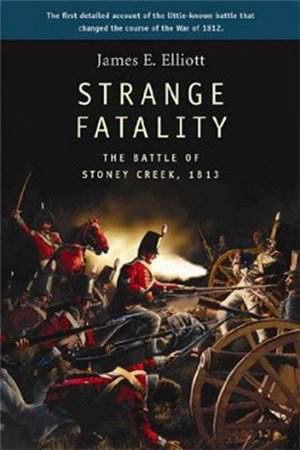Strange Fatality:
The Battle of Stoney Creek, 1813

Support Canada's History in other ways (more)
by James E. Elliott
Robin Brass Studios, Montreal, 2009, $24.95
A double review with Niagara 1814: The Final Invasion
by Jon Latimer
In Strange Fatality: The Battle of Stoney Creek, 1813, James Elliott explains how a “chaotic, night action hardly an hour in duration” changed the course of the War of 1812.
Reeling from an earlier defeat, the British mounted a desperate counterattack against a much larger American army east of present-day Hamilton. As the author graphically describes, the raid quickly degenerated into blind confusion on both sides. The American forces, taken by surprise, retreated to the Niagara River in shock.
Elliott does an excellent job of placing the brief skirmish in the context of the war and explores how a combination of bungling American leadership and pure luck prevented the United States Army from capturing the most populated and fertile region of Upper Canada.
Though many of the episodes and details will be familiar to students of the war, Elliott’s retelling moves along at a brisk and engaging pace, making for a very fluid read. Entertaining vignettes and pithy historical quotations liven up the narrative, as do the scores of portraits, photographs, and maps that fill the book’s pages. With helpful appendices, a bibliography, and plenty of careful citations, Strange Fatality will be enjoyable for casual readers of military history and useful to scholars.
The events of the war’s last American offensive the following summer are succinctly retold by John Latimer in Niagara 1814: The Final Invasion. Vividly illustrated by Graham Turner, Niagara 1814 compares the leadership, forces, and planning of the opposing sides and provides a blowby-blow account of the action that ensued.
Detailed maps and artist’s renderings bring to life the savage fighting that took place at Chippewa, Lundy’s Lane, and elsewhere. Niagara 1814 would be an excellent companion for a battlefield tour and offers a solid starting reference to some of the bloodiest fighting ever to occur on Canadian soil.
— Tim Compeau (Read bio)
Tim Compeau is a PhD candidate at the University of Western Ontario Museum.